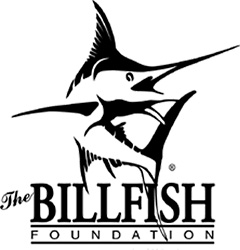
|  |  |  News Around the Republic of Mexico | September 2008 News Around the Republic of Mexico | September 2008  
Mexican "Fishing Mafia" Tagged for Three Illegal Catches
 Pete Johnson Pete Johnson


| | Full details of the story will follow in next month's edition of the TBF's Billfish Magazine and on the TBF web site at Billfish.org. | | |
Community based enforcement efforts in Baja California Sur, Mexico, supported by The Billfish Foundation (TBF) through the Center for Marine Protection and funded by the recreational fishing license fees paid to FONMAR, have resulted in three recent seizures of vessels carrying multi-tons of illegally harvested dorado.

On August 13, a commercial vessel from Mazatlan was seized in waters north of Loreto with 1,300 kilos (nearly 1.5 tons) of dorado (also known as mahi mahi, dolphinfish or goldenmakrele,) a species strictly relegated for sportfishing and not commercial long-lining or netting. Local FONMAR agents said the crew was filleting the illegal fish at sea.

Then over the weekend of Sept. 5, two boats owned by commercial longline king Henry Collard were seized and charged with illegally harvesting dorado while using a shark permit in Magdelena Bay. The two vessels were carrying 14 tons of dorado along with several tons of shark.

News reports in the local La Paz newspaper El Sudcaliforniano were critical of the illicit activities described as "the fishing mafia" and commercial "pirates" which are often funded by the Mexican federal government. The report said it's been happening for years.

Collard, a prominent representative of commercial fishing interests, was reported to have threatened fisheries enforcement agents that he "is a personal friend of Ramon Corral and you can't do this to me!"

TBF President Ellen Peel said this statement does not do much for Corral's already tainted image by accusations of wrong doing by his own CONAPESCA personnel.

"Corral is the head of Mexico's fisheries agency CONAPESCA and has been an unyielding supporter of the new regulation NOM-029 that attempted to allow the 'incidental' harvest of billfish, dorado and other species within Mexico's 24 year-old conservation zones."

The news report also said the CONAPESCA boarding party, received a call from senior officials of Mexico City, and opted to withdraw from the arrest site, leaving the responsibility for the inspection staff of FONMAR. The news reporter said the FONMAR personnel were not intimidated by the threats of the crew of the seized boat.

Investigations are also underway by U.S. and Mexican officials regarding the transportation of hundreds of tons of the illegal dorado catches from the Port of Guaymas into Arizona through Nogales, and into California through Tijuana.

TBF President Ellen Peel said, "Apparently the recent interest of U.S. enforcement officials in the import of illegally caught dorado has persuaded CONAPESCA that they need to concede TBF's position that there is no basis in Mexican law to allow bycatch in the conservation zones and enforce the federal fisheries law."

Peel said the foundation was instrumental in getting FONMAR established locally in Baja Sur in 2005 so angler's license fees go to directly assisting conservation and protection of the fish resources in the region. Small panga patrol boats have been purchased from the FONMAR money. As a result local fishermen are reporting illegal acts to the FONMAR officials.

Dr. Russell S. Nelson, TBF's Chief Scientist, said the increased enforcement against illegal fishing activities in and around the Baja Conservation Triangle has been the first priority for funding FONMAR, the trust created in 2005 by TBF and its Mexican conservation partners.

Working with governments worldwide The Billfish Foundation advances the conservation of billfish and associated species to improve the health of oceans and economics. Since 2002, TBF has been working in the "triangle" an area bounded by Los Cabos, La Paz and Magdelena (Mag) Bay in the southern Baja peninsula.

"There are many loop-holes in the May 15 NOM-029 regulation also known as 'Shark Norma,'" said Nelson. "It dramatically and destructively affects the fishing resources in the Sea of Cortez (Gulf of California) and the millions of tourist dollars that support sportfishing such as catch and release for striped marlin in the region."

Full details of the story will follow in next month's edition of the TBF's Billfish Magazine and on the TBF website at Billfish.org.

To contact Ms. Peel call her at 800-438-8247 ext. 108, or via email at ellen_peel(at)billfish.org. For Dr. Nelson please email him at DrRSNNC(at)aol.com or by phone at 561-449-9637.

Founded over two decades ago, The Billfish Foundation with headquarters in Ft. Lauderdale, Fla., USA, is the only non-profit organization dedicated solely to conserving and enhancing billfish populations around the world. TBF's comprehensive network of members and supporters includes anglers, captains, mates, tournament directors, clubs, and sportfishing and tourism businesses. By coordinating efforts and speaking with one voice, the organization works for solutions that are good for billfish, not punitive to recreational anglers and good for the local economy. |

 |
|  |



